When will it be my turn to get the COVID-19 vaccine? And how will I know?
With vaccine deliveries speeding up, provinces are scrambling to finalize their rollout strategies
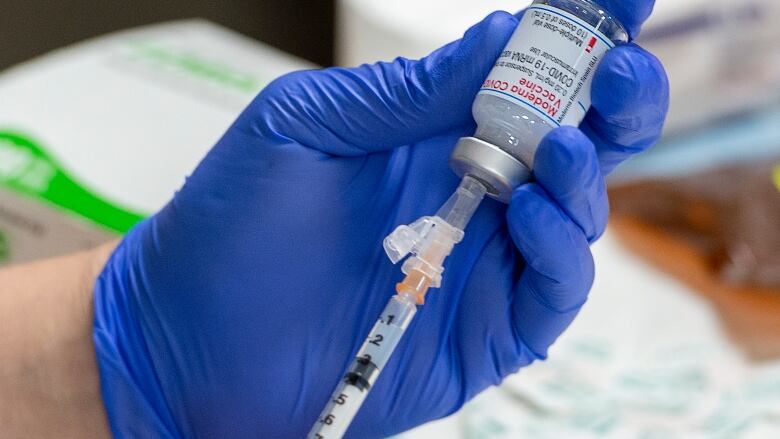
Vaccine deliveries are starting to ramp up again, and Canadians everywhere are asking themselves the same questions: When will it be my turn? And how will I know?
Each province has a phased plan for vaccine deploymentwhich indicateswhen the variouspriority groups can expect toreceive theshots.
All provincial and territorialgovernments maintain they're ready to speed up the vaccination effort as the supply increases, but some of their timetablesremain vague. Here's what we know so far about who's getting the shots and when.
British Columbia
B.C. is stillin Phase 1 of its vaccine rollout,which covers residents and staff of long-term care facilities, health care workers who may provide care for COVID-19 patients and remote and isolated Indigenous communities.
The subsequentphase runsover February to March and includesseniors 80 and over, Indigenous seniors 65 and over, hospital staff and medical specialists, vulnerable populations living and working in congregated settings and staff providing in-home support to seniors.
B.C. says the province's general population will start getting the vaccinesin April, with older residents getting their shots first.
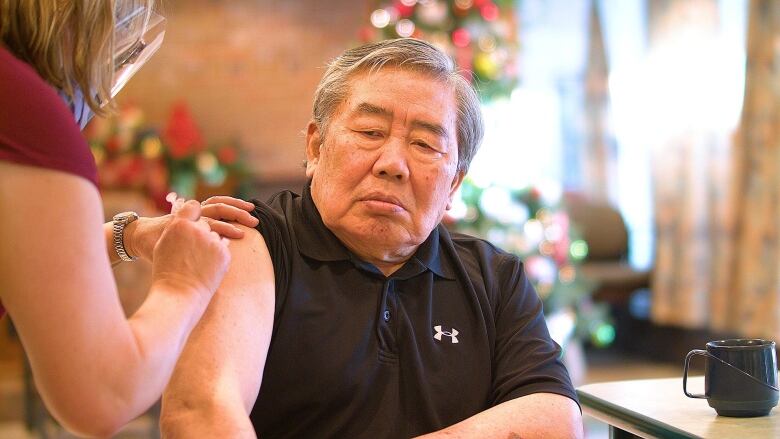
Immunization clinics overseen by local health authoritiesare being organized in 172 communities inschool gymnasiums, arenas, convention centresand community halls.
B.C. said it would start reaching out by the end of Februarytoseniors 80 years and older, Indigenous seniors aged 65 and olderand Indigenous Elders to tell themhow to pre-register for immunization appointments.
Pre-registration for vaccinations opens inMarch.People can pre-register, online or by phone,two to four weeks before they are eligible. Eligibility is based on the current phase of the vaccination program and the recipient'sage.
Those contacted for vaccination appointments are pre-screened for eligibilitybefore choosing a location, date and time to receive the shot.
After an individualgets their first vaccine dose, they'llbe told by email, text or phonewhen they canbook an appointment for their second dose.
For more information about B.C.'s vaccination plan, go here.
Alberta
Alberta is in the first phase of its vaccinerollout.This phase which isexpected to run until the end of the month covershealthcare workers who could be in direct contact withCOVID-19 patientsand residents of long-term care facilities.
As of Feb.24, seniors75 and overand seniors 65 and over living in First Nations andMtiscommunities will be eligible forvaccination.The Alberta government estimatesthere are about 230,000 seniors in these twogroups.
Given the anticipated vaccine deliveryschedule,Alberta Health Services says itexpects it willbe vaccinating people in this phase overmost of March.
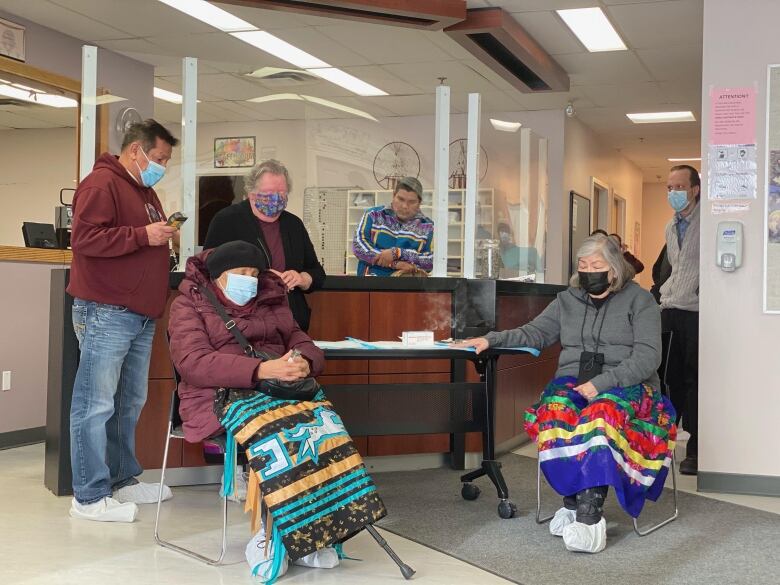
Phase 2is expected to begin in April. Vaccinations in this phase will be offered to anyone aged 50 to 74 years, anyone with underlying health conditions, First Nations and Mtis people aged 35 and older, residents and staff in congregate living settings and eligible caregivers.
The Alberta government says that, as supply increases,itwillacceleratevaccinations on the model of its annual flu campaignbyusing Alberta Health Services staff, community pharmacies and family physicians.The province was able to administer 1.3 million flu shotsinsix weeks last fall an average ofover30,000 shots per day.
For more information aboutAlberta's vaccination plan, go here.
Saskatchewan
Saskatchewan's Phase 1 is still underway, focusing on health care workers, residents and staff of long-term care homes, residents 70 years and older and residents in remote and northern regionsover the age of 50.
The timing is still not known, butPhase 2 will cover the general population starting with people aged 60-69, extremely vulnerable individuals and staff and residents of group homes and emergency shelters.
The province expects that whenPhase 2 begins, there will be 226 vaccineclinics in 181 communities across the province operated by the Saskatchewan Health Authority. Those clinics will include mass vaccination sites, drive-through locations and mobile vaccination clinics. Moresites will be added through pharmacies and doctors' offices.
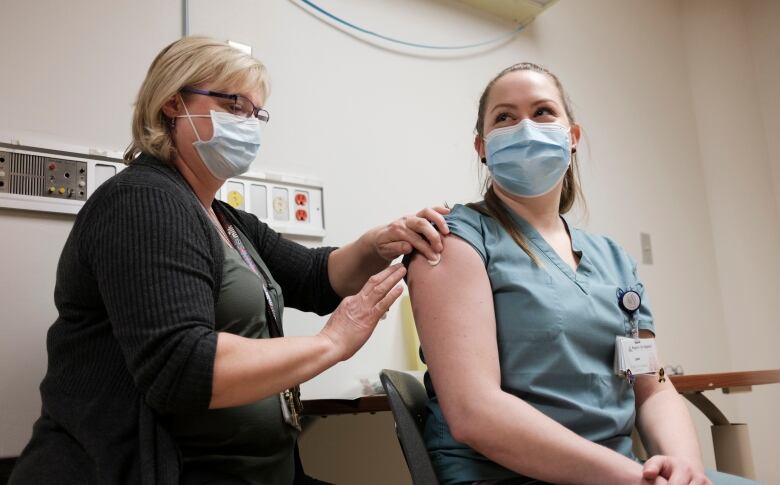
People will be asked to register for vaccinationthrough an online platform or byphone.
For more information about Saskatchewan'svaccination plan, go here.
Manitoba
Manitoba's immunization teams are nowvaccinating residents at 1,400 congregate living sites, including hospitals, supportive housing facilitiesand assisted living sites.On February 19, immunization began in Brandon and Winnipeg.
The next eligible group includes healthcare workers who werenot included in Phase 1, residents and staff of shared living facilities and essential workers.
Manitoba has set up a Vaccine Queue Calculator to allow Manitobans to estimate when they'll receive their vaccines.
On March 5, the province expects to open twonew "supersites" for large-scale vaccinationsinSelkirk and theMorden-Winkler area, bringing the number of such sites to six. (Threeare inWinnipeg, Brandon andThompson, with a fourth facility at the airport outside Thompson.)
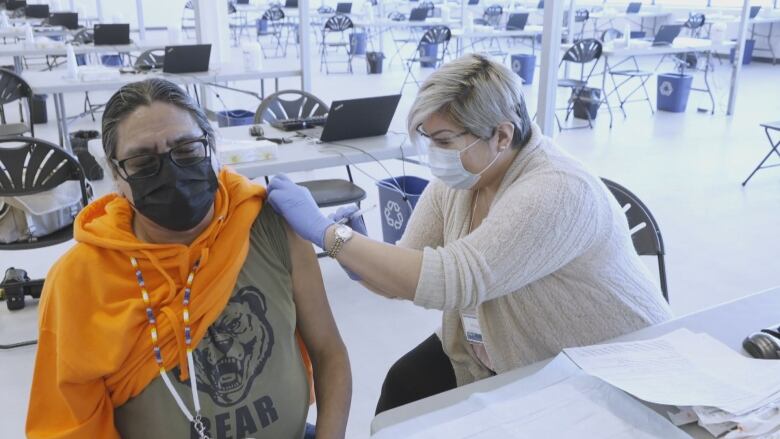
The province says itplans to expand to 13 supersites throughout Manitobain April. It has hired 1,212 peopleto help with the vaccination effort.
More than 400 medical clinics and pharmacies have applied to be a part of the immunization campaign once a suitable vaccine is approved for use in these settings.
Manitobanswithquestions about the vaccination plan and their position in the queuecan go to this websiteor call a toll-free number:1-844-626-8222.
Ontario
Ontario's vaccination rollout is inPhase 1, which coversstaff and essential caregivers in long-term care homes, high-risk retirement homes and First Nations elder care homes, and highest-priority health care workers.
As thevaccine supply increases, Phase 1 is expectedto move on to adults 80 years of age and older, staff, residents and caregivers in retirement homes and other congregate care settings, high priorityhealth care workers, all Indigenous adults and adult recipients of chronic home care.
Phase 2 is setto begin as early as March. This phase will add more vaccination sites, including municipally run locations, hospital sites, mobile vaccination locations, pharmacies, clinics,community-run health centres and aboriginal health centres.
Ontario Solicitor General Sylvia Jones said the provinceis "empowering" local health units to draw up their own specific plans to distribute the vaccine, and all have been submitted to the government for approval.
Vaccines will be distributed to health units based on population, Jones said, and while they must follow the province's plan to vaccinate priority populations first, they can also determine the best way to serve the needs of their communities.
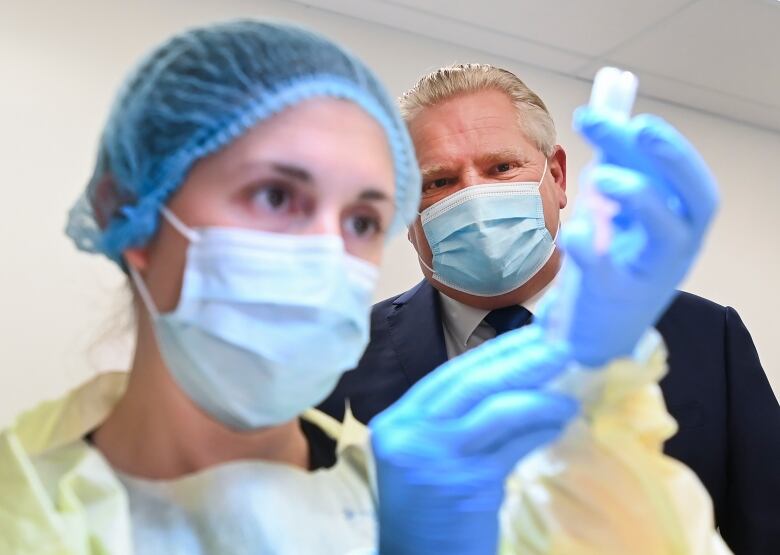
Phase 3 coversthe general population and is expected to begin by late summer.
The Ontario government is developing an online portal formass vaccination pre-registration and appointment booking. For those without access to the internet, the province will establish a customer service desk to register and book appointments. Neighbourhoodmobile clinics are being planned by local public health units.
For more information about Ontario'svaccination plan, go here.
Quebec
Quebeccontinuesto inoculate priority groups such as healthcare workers on the front lines, those who live in long-term care or seniors' homes(known as CHSLDs) and those living in remote areas.
Once more vaccines arrive, Quebec plans toexpand inoculations to include seniors 70 and up and those with chronic health conditions that make them more vulnerable to COVID-19.
The province has started to prepare by securing mass vaccinationsites, such as theOlympic Stadium.

It has already set up mass vaccination sites in major urban centres in anticipation of an increase in thevaccine supply. One of them the Palais des congrs de Montralin the heart of downtown expects to vaccinate up to2,000 people per day.
Quebec's health department says it's planning a public information campaign to inform residents about the vaccination process.
For more information about Quebec'svaccination plan, go here.
New Brunswick
Phase 1 is underway, covering long-term care residents and staff, front line healthcare staff, First Nations adults and individuals 85 and over.
Phase 2 starts in April and will include residents in other communal settings, health care workers providing direct patient care (such as pharmacists anddentists), firefighters, police officers, home support workers for seniors, people 70 and over, people with complex medical conditions, volunteers at long-term care homes, people 40 and over with three or more chronic conditions and truckers or workers who cross the Canada-U.S. border regularly.
The N.B.government's website says that details aboutwho can register for vaccinationand when will be announced in the coming weeks.Clinic locations are also being finalized.

The province is asking residentsto wait for those details instead of tying up resources by callingtheprovincial tele-care number or their local health practitioners.
Prince Edward Island
P.E.I.'s vaccination effort isin its first phase, whichwill continue throughout March. Public health nurses had been delivering the vaccines; trained pharmacists were approved recentlyto administer the doses as well.
Those getting vaccinations in this phase are residents and staff of long-term care homes, health care workers in direct contact with patients who face an elevatedrisk of COVID-19 exposure, seniors 80 and older, adults 18 and older living in Indigenous communities, residents and staff of shared living facilities (such asgroup homes, shelters andcorrectional facilities) and truck drivers and otherworkers who routinely travel out of the province.
Starting February 22, vaccine clinics in P.E.I.will start giving doses to seniorsaged 80 and older.
The province says other population groups will be told when they can be vaccinated as the rollout continues. The province expects to have four clinics in operation starting in March inO'Leary, Summerside, Charlottetown andMontague.
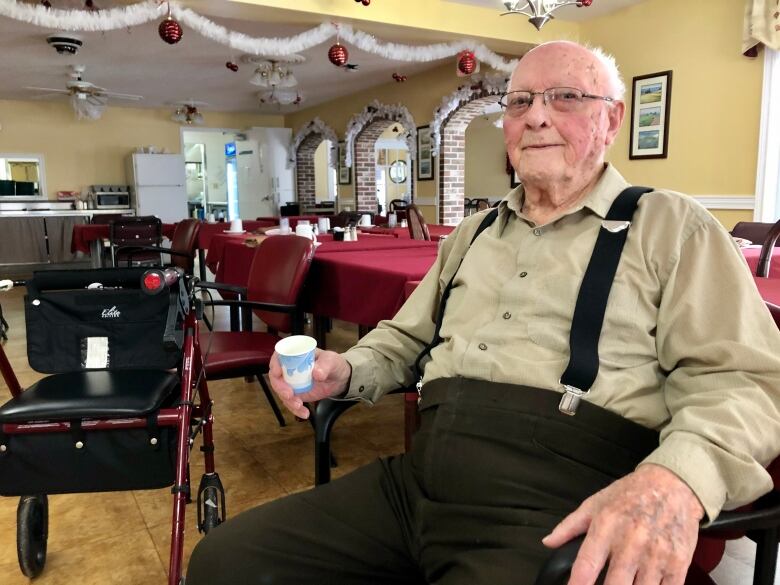
Vaccinations in P.E.I. are byappointment only. When theirturns comeup, Islanders can book theirappointments by calling 1-844-975-3303 or by filling out a form available through this government website.
For more information about Prince Edward Island'svaccination plan, go here.
Nova Scotia
Nova Scotia's vaccination effort isinPhase 1. That coversthose who work directly with patients in hospitals or carehomes, people who live and work in long-term care homes and people who live and work in adult residential care centres and regional rehabilitation centres.
The next phase willinclude:anyone who works in a hospital (and mightcome into contact with patients);doctors, nurses, dentists, dental hygienists and pharmacists; people who live in correctional facilities, shelters and temporary foreign worker housing; people who are required to regularly travel for work (such astruck drivers);people responsible for food security (such as workers inlarge food processing plants); those aged75 to 79 and those80 and older.
N.S. Public Health is holding prototype clinics beforedeployingvaccines across the province.
The first prototype clinic for seniors80 years and older will be at the IWK Health Centre in Halifax starting the week of Feb.22. Clinics will open in Halifax, New Minas, Sydney and Trurothe week of March 8. More clinics will open in Antigonish, Halifax and Yarmouththeweek of March 15. Clinics will open in Amherst, Bridgewater and Dartmouth theweek of March 22.The province is planning to set up clinics in pharmacies as well.
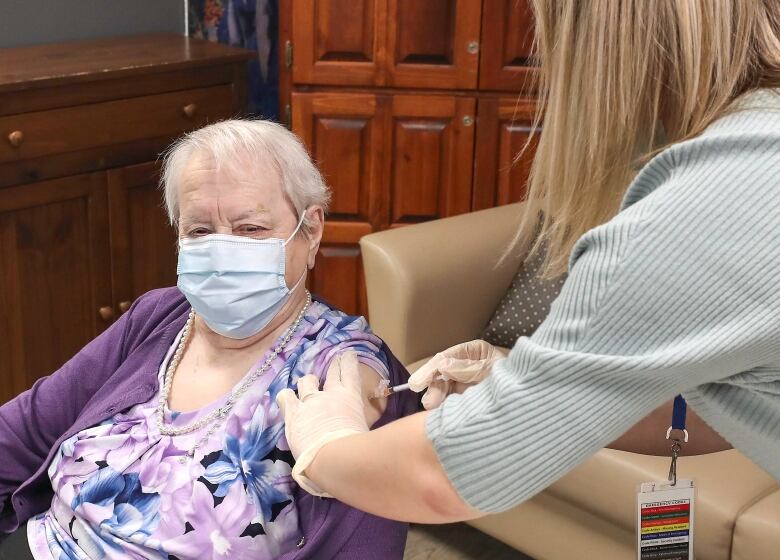
Those at the head of the queue will receive lettersfrom the provinceexplaining howto schedule avaccinationappointment.
For more information about Nova Scotia'svaccination plan, go here.
Newfoundland & Labrador
Newfoundland & Labrador is in Phase 1 of its immunization plan. Dosesin this first phase are earmarked for congregate living settings for seniors, health care workers at high risk of exposure to COVID-19, people 85 and older andadults in remote or isolated Indigenous communities.
The next group to get shots will include health care workers who werenot included in Phase 1, residents and staff of all other congregate living settings and essential workers. These categories are still being defined by the province and its health department says details of future phases are still being finalized.
A statement from the province's Department of Health and Community Services says that the province hasn't confirmedwhen it will receive the doses it needs to complete Phase 1, and until it does it will be unable to say when the province will switch to Phase 2. The departmentdid say that it is anticipating Phase 2 will begin "sometime in April."
For more information about Newfoundland & Labrador'svaccination plan, go here.
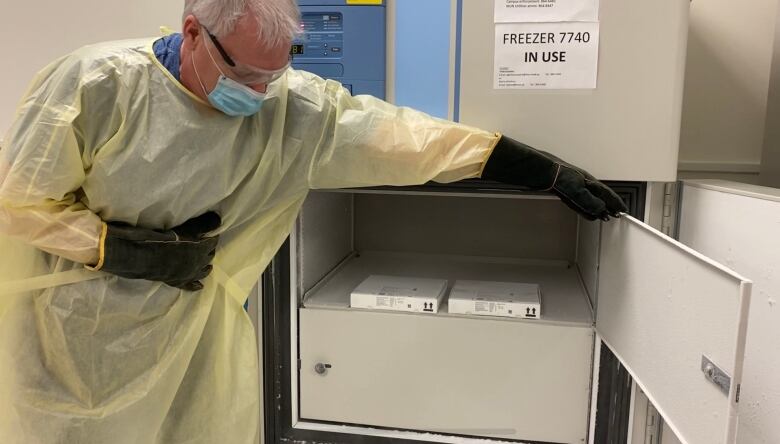
Yukon
Priority groups in Yukonhave received theirfirst dosesand, in some cases, their second doses as well.
As of Feb.19, high-risk health care workers and long-term care residents and staff hadreceived their second doses.
Those living inremote ruralcommunities and peopleaged65 and older are tostart gettingtheir second doses beginning the week of Feb.22.
Over the past few weeks, every communityoutside Whitehorse has been visited byone of twomobile vaccine clinic teams (named'Balto' and 'Togo') deliveringfirst doses to all residents 18 and over.
In Whitehorse, a mass clinic will open on March 1that will deliverup to 800 immunizations a day both first and second doses.
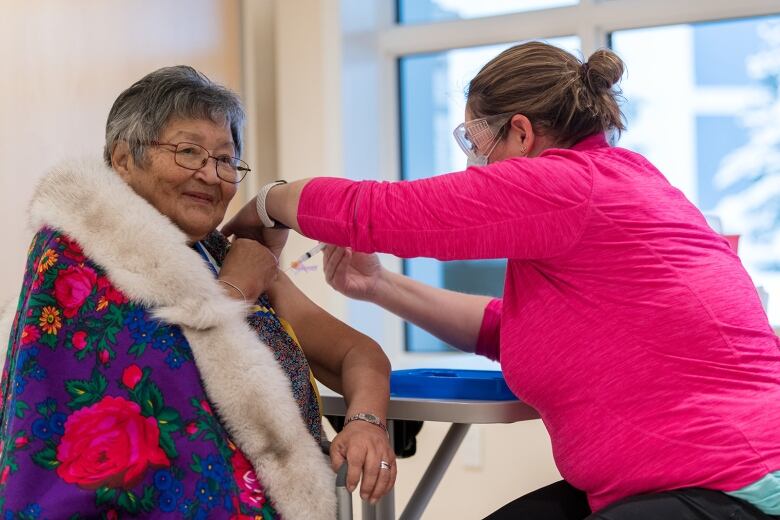
All Whitehorse residents 18 years of age and oldercan now book appointments for their first shots.
Those living in Whitehorse must book appointments online or by calling 1-877-374-0425.In rural Yukon, where internet connectivity may be an issue, appointments are recommended but walk-ins are welcome.
For more information about Yukon'svaccination plan, go here.
Northwest Territories
All NWT long-term care residents have received first and second doses.The NWT COVID-19 vaccine strategy says thegeneral population can expectaccess to the vaccine in March.
As of Feb. 22, the territory had administered 14,520 first doses and 1,934 second doses.
The strategy saysenough doses to immunize 75 percent of eligible residents 18 years of age and older should be deliveredby the end of March.
"This generous initial allocation from the federal government recognizes the territories' limited health care system capacities and the vulnerabilities of remote Indigenous communities," says the document.
The vaccine schedule and booking tool are nowonline and will be updated as more doses are delivered.
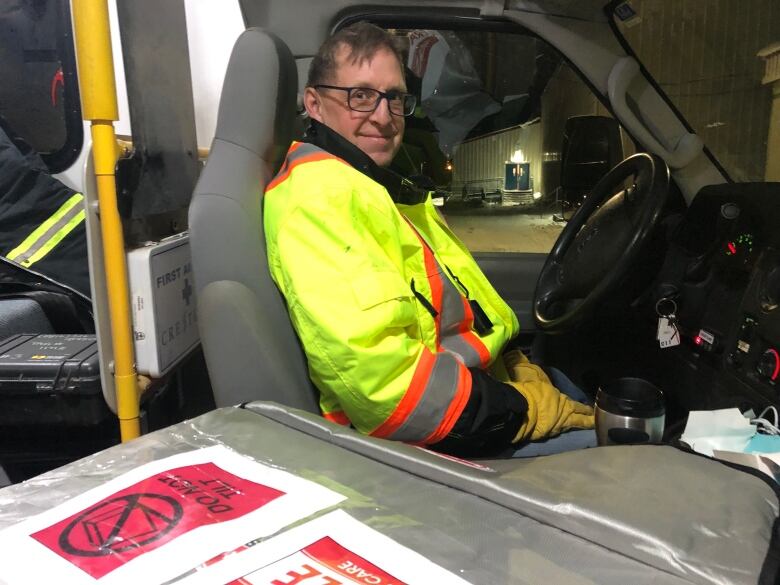
Those living in larger centres are expectedto call or book online for their vaccinations. In smaller communities, meanwhile, dates and locations for vaccination clinics will be advertised and residents will be asked to show up.
Multiple small mobile vaccine units aretravellingto 33 communities to helplocal health care staff administer doses.
For more information on NWT's vaccination plan, go here.
Nunavut
Nunavut says it expectsto have 75 per cent of its population over the age of 18 vaccinated by the end of March.
Nunavut isonly usingthe Moderna vaccine right now and has been stagingvaccine clinics in two or three communities at a time.
Beginning nextweek, seven communities will be gettingtheir first doses of the vaccine.
In Iqaluit, vaccinations are by appointment only and are being directed towardelders 60 or older,thoseliving in community shelters, front line health workers, Medivac flight crews, residents and staff of group homes andIqaluit's Akaausisarvik Mental Health Treatment Centre, and residents and staff of correctional facilities.
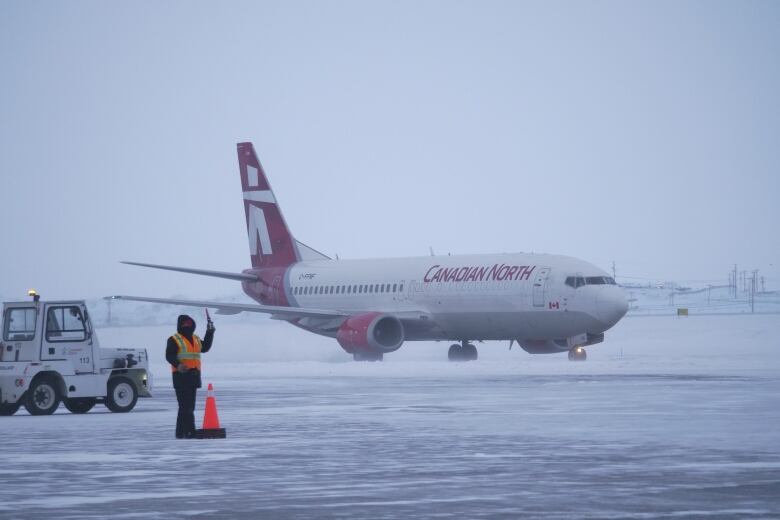
The next phasein Iqaluit is expected to begin in March.
Nunavut relays COVID-19 information through public service announcements via TV, social media, community radio and the government's website. The website shows thelocations ofclinics, theirtimes of operation and contact information.
With files from Doug Beazley













_(720p).jpg)


 OFFICIAL HD MUSIC VIDEO.jpg)
.jpg)



























































































